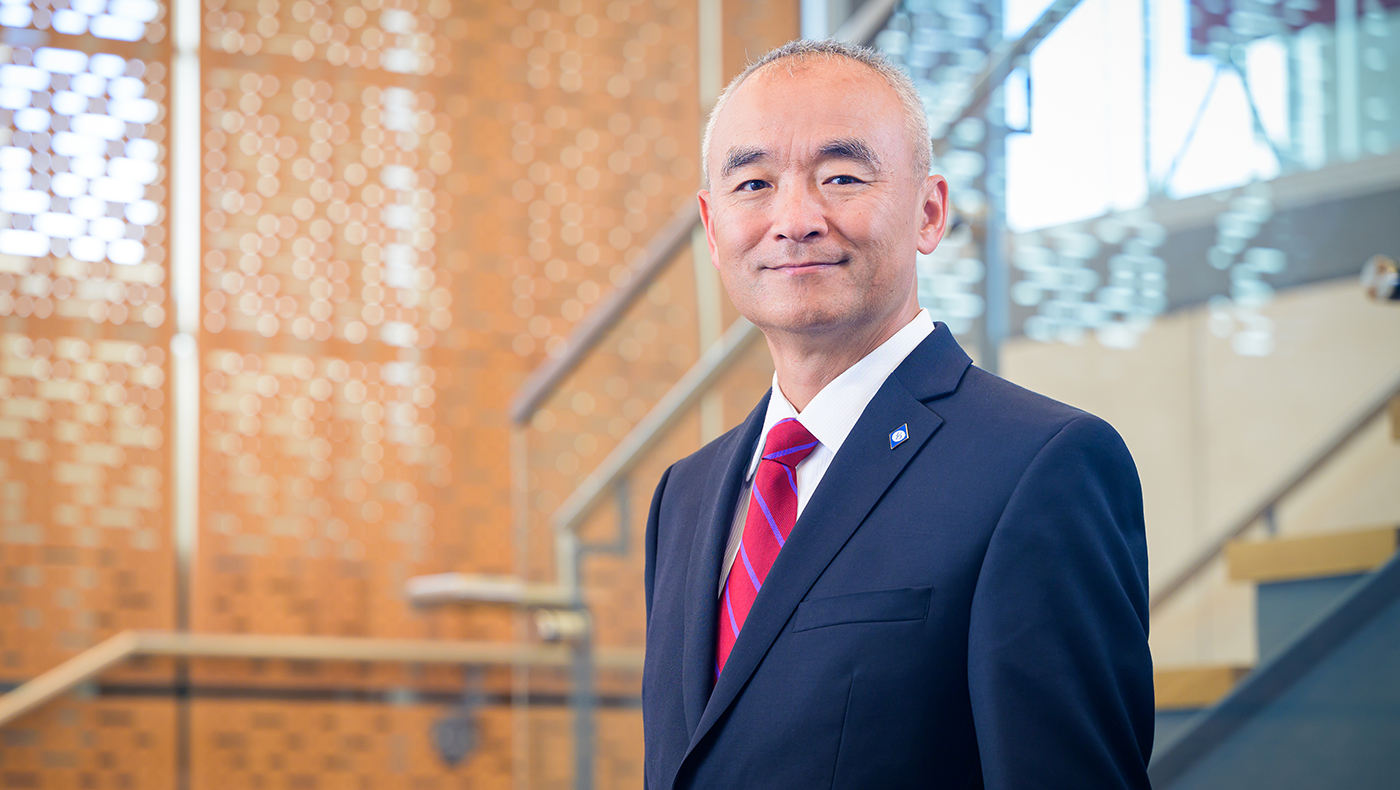Call it a wave, an earthquake, or a storm, depending on your level of optimism, but digital technology continues to transform daily life. Oliver Yao, the new dean of the University of Delaware’s Alfred Lerner College of Business and Economics, wants the college to be at the center of this transformation.
“We are just at the very beginning of this technological revolution,” Yao said, noting that a broad swath of business fields are being impacted by emerging tech, including marketing, accounting, human resources and supply chain management.
He’s previously said that the University of Delaware’s vision for collaboration on technological innovation, featuring partnerships among researchers, industry and the community, was part of what drew him to the job as Lerner College dean.
Artificial intelligence and other breakthroughs plant us in an era similar to the dawn of the internet, he thinks. That era changed lives and businesses, and this further evolution of digital technology will too.
A college of business will have to be at the forefront of financial technology (often called fintech). There is blockchain, digital currency, new trading technology, AI in credit scoring and more, Yao noted. He has studied the emergence of facial recognition in payments, which he calls revolutionary. “That means you don’t have to carry anything. There is no paper money, no checkbook, no cellphone … all you need to do is carry your own face.”
Yao is bullish about the Lerner College’s ability to play a prominent role in this fintech revolution, citing three factors for success: Timing, location and people.
As far as location, Delaware is a key business hub and the center of American corporate law, and Newark sits within easy reach of financial centers like New York City. “We’re in the right location to do this,” Yao said.
When it comes to people, Lerner has leadership that believes in fintech, Yao said, and faculty with expertise who have already been engaged in financial technology research. Staff and students are very interested as well.
Lerner College is also partnering on the FinTech Innovation Hub, which opened recently on the Science, Technology and Advanced Research (STAR) campus. This research center aims to bring together the energy of the Lerner College and the College of Engineering (COE), among others.
“We’re well positioned,” Yao said.
Another strength Lerner brings is its Financial Services Analytics graduate program (FSAN). This program is highly selective, bringing in a few students each year who engage in rigorous research on a range of applications. They’re exploring arenas like artificial intelligence in customer service or credit card evaluations, predictive analytics, and malware detection, to name just a few. This program is a joint effort between the Lerner College and the College of Engineering.
Yao called this an integral part of Lerner’s focus on fintech, and praised the FSAN faculty members for their dedication to the students’ education and research.
He also pointed out how unusual it is to have an interdisciplinary program in financial services and analytics.
“It’s a distinct Ph.D. program. If you look across the whole country, I don’t think you can see another program the same,” Yao said.
Along with Lerner’s strengths in financial technology, Yao sees ways to improve. Research is very important to him, and he wants to see Lerner grow into a reputation as a top business school through publication in top research journals. The college has done well in this area already, he said, but needs to increase the pace.
He also wants to ensure all students at Lerner are getting basic fintech knowledge on some level, so they’ll be more attractive to companies looking for talent.
To help meet both of those goals, Lerner under Yao’s leadership is looking to hire new faculty, while also strengthening recruitment for FSAN and growing that program as well.
This will be a crucial boost to students as AI rewrites financial technology with applications from automation in accounting to changing how we do money.
“I cannot imagine what our life will be in 20 years, actually, but I know that our students need to be exposed to the AI revolution, they need to understand the technology,” Yao said. “They need to understand the implications of those technologies on business … many jobs will be redefined.”




